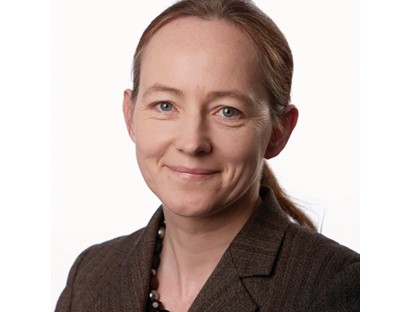The senior GP partner at a practice I do regular locums for has had a ‘quiet word’ suggesting I make too many referrals. I disagree, but I want to continue working at this practice – what can I do?

Locum GP: Ask the practice to audit all referrals
Our decision-making when referring patients is complex. Patient factors such as comorbidities, age, deprivation and their own desire for a referral play their part. So do GP factors such as previous experience with a condition and the doctor-patient relationship – including ability to follow up a patient, which can be reduced for locum doctors.
A locum doctor may also see a high proportion of acute presentations requiring a new referral, while regular GPs at the surgery may manage more patients who were previously under secondary care, with management plans already in place. A more experienced GP will often refer less than a newly qualified GP.
With all this in mind, take a proactive approach with the surgery and ask for referral data to be collected for all doctors, to explore any large variations and what factors might be causing them.
If the process reveals an obvious discrepancy with your referrals, this could be addressed with further learning or by discussing patients with senior GPs and consultants. And if other doctors have a particularly low referral rate this may suggest they have a learning need.
Be prepared to stand your ground – it is important to refer when you feel it is medically appropriate. Remember the RCGP and BMA GP Committee joint guidance states that good clinical care includes ‘referring a patient to another practitioner, when this is in the patient’s best interests’.1
Dr Hannah Casey is a locum GP and vice-chair of North Essex LMC
Senior partner: Use it to develop professionally

Don’t panic or overreact. The partner’s raising of this face to face rather than complaining behind your back suggests the practice wants to continue working with you, and is not a sign you should quit. Being able to raise concerns with colleagues is a sign of a good practice.
Are you confident that you are not referring more than necessary? Referral rates vary considerably, sometimes for reasons beyond GPs’ control such as population health needs, but also because of GPs’ attitudes to risk and patient pressure.2 An increased referral rate can be also be due to knowledge gaps, not being aware of what services can be provided in house or locally, or just not knowing the patient well.3
At the same time, more than nine million GP referrals are made each year and practices are under ongoing pressure to reduce this through ‘demand management’ schemes.4 The practice could therefore be involved in a local initiative, and possibly has a pecuniary interest in reducing referral rates.5
Consider auditing your referrals for your appraisal. The number of referrals made by any individual GP is too small to draw any conclusion, so an audit should look at whether the referral was ‘reasonable’, or at the outcome. ‘Reasonable’ is hard to define, but ask the senior partner, another GP or a support group to discuss a random selection of your referrals. Audit outcomes by assessing the percentage of referrals that result in a follow-up appointment, investigation or procedure.
Approach this criticism professionally and look for opportunities to develop.
Dr Grant Ingrams is a senior GP partner in Leicester
Medicolegal view: Don’t let it cloud your judgment

It is understandable to be concerned, but listen to what the senior partner has to say. Ask why they feel you have made too many referrals and how they have reached this view. If it is based on a review or audit, ask to see the data.
While you want to continue working at the practice it is essential that you do not allow this to adversely influence your care of patients.
The GMC emphasises that you must make the care of the patient your first concern and ‘must not allow any interests you have to affect the way you prescribe for, treat, refer or commission services for patients’.6
It also requires you to ‘make good use of resources available to you’ and to contribute to and comply with systems to protect patients’. including ‘taking part in regular reviews and audits of your work and that of your team, responding constructively to outcomes, taking steps to address problems and carrying on further training where necessary’, as well as ‘regularly reflecting on your standards of practice and the care you provide’.
Considering the above obligations and the importance of ensuring safe and appropriate care for patients, balanced against finite NHS resources, it is essential to approach the discussion
with an open mind. You should be prepared to consider why the senior partner has concerns, to review any information in support of those concerns and to explain the reasons for the referrals you made.
If you still believe the senior partner’s concerns are not valid, explain constructively why you do not agree. If you feel they are justified, consider it a learning opportunity. If you alter your practice as a result, consider an audit to assess any change in your referral rate and discuss this at your next appraisal.
Dr Jo Galvin is a medicolegal consultant at Medical Protection
References
1. RCGP and BMA GP Committee. Good medical practice for general practitioners. 2008.
2. King’s Fund. The quality of GP diagnosis and referral. 2010.
4. NHS England. Demand management good practice guide. 2016.
5. Wilkinson, E. Dereliction of duty? GPs offered cash to reduce referrals. Pulse 2018.
6. GMC. Good Medical Practice. 2013.

















